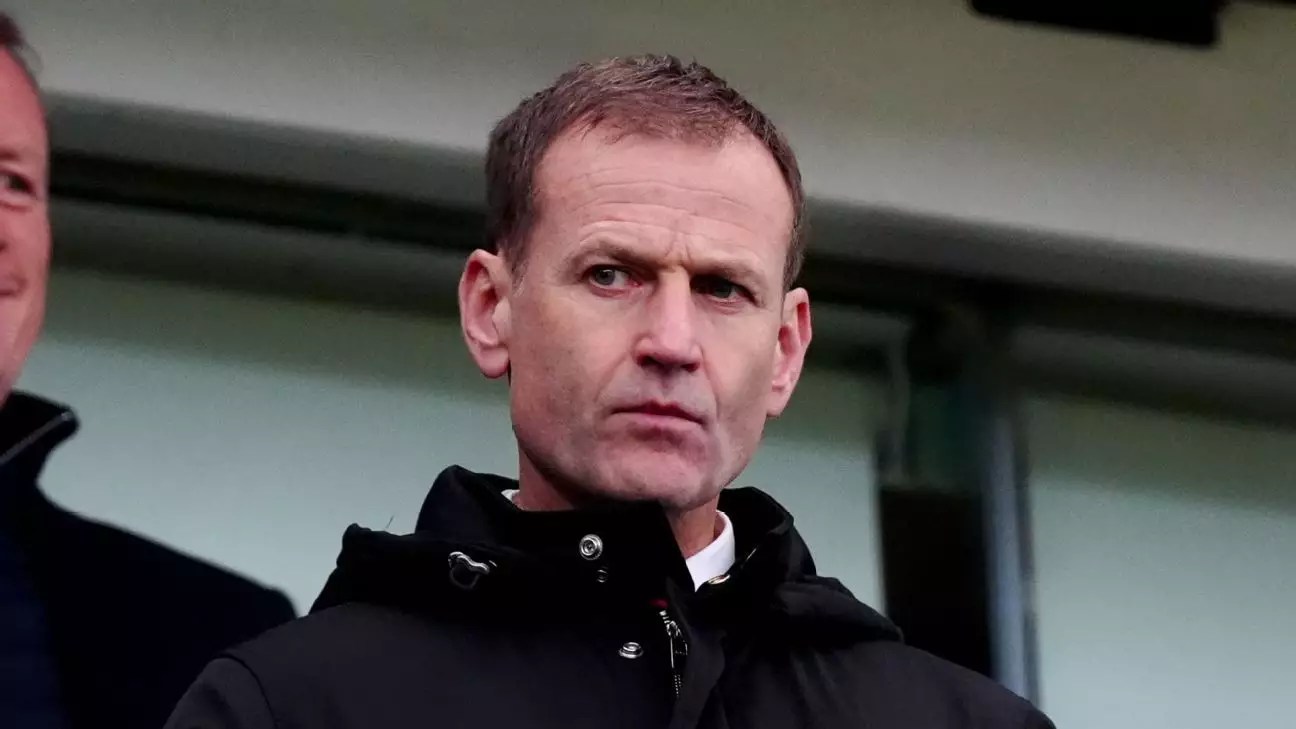Dan Ashworth’s abrupt departure from Manchester United after just five months has raised eyebrows and caused speculation among fans and pundits alike. Joining the club in July after a protracted settlement with his previous employer Newcastle United, Ashworth was expected to play a pivotal role in revitalizing the struggling team. However, his time at Old Trafford ended far sooner than anticipated, leaving many to consider the implications of his rapid exit on the club’s future.
When Ashworth arrived, he was viewed as an essential figure in the ambitious plan laid out by Sir Jim Ratcliffe, the club’s new owner. The expectation was that he would help steer the club toward stability and success, especially as Manchester United sought to rebound from significant challenges in the wake of Erik ten Hag’s dismissal. Collaborating closely with technical director Jason Wilcox and CEO Omar Berrada, Ashworth was expected to fortify the squad and lay down a foundation for a new footballing philosophy.
Unfortunately, the reality was far less optimistic. His tenure included just one transfer window, during which he oversaw several key signings. While Matthijs de Ligt, Noussair Mazraoui, Manuel Ugarte, Leny Yoro, and Joshua Zirkzee were all brought in for an impressive total exceeding £180 million, this spending has not translated into immediate success on the pitch. The team suffered a disheartening 3-2 loss to Nottingham Forest that left them languishing in 13th place in the Premier League, raising serious questions about managerial decisions and player performances.
One of the most puzzling aspects of Ashworth’s departure is the timing. His exit follows closely at the heels of newly appointed head coach Ruben Amorim’s arrival, indicating a potential lack of coherence and strategy in the club’s management. Having played a significant role in Amorim’s selection, Ashworth’s swift removal raises doubts about the club’s long-term vision and the stability of its leadership structure.
The decision to sever ties suggests deeper-rooted issues that may be plaguing the club. Ashworth’s inability to gel the new signings with the existing squad and inspire them to deliver results on the field is likely a significant factor. The staggering drop to the club’s lowest points tally after 15 games since 1986 exemplifies the urgency for a strategic overhaul that transcends personnel changes.
As Manchester United attempts to reposition itself in the Premier League hierarchy, Ashworth’s exit serves as a cautionary tale about the volatility of football management in today’s high-stakes environment. The club must reflect on its recruitment strategies, managerial choices, and the overall direction it intends to pursue. The imminent question remains: can United find the right people to usher in a new era of success, or will they continue to struggle under the weight of past failures?
In a world where results dictate longevity, Manchester United must learn from this misstep and ensure that future appointments, be it in coaching or sporting roles, align with a unified vision that aims to restore the club’s lost glory.


Leave a Reply